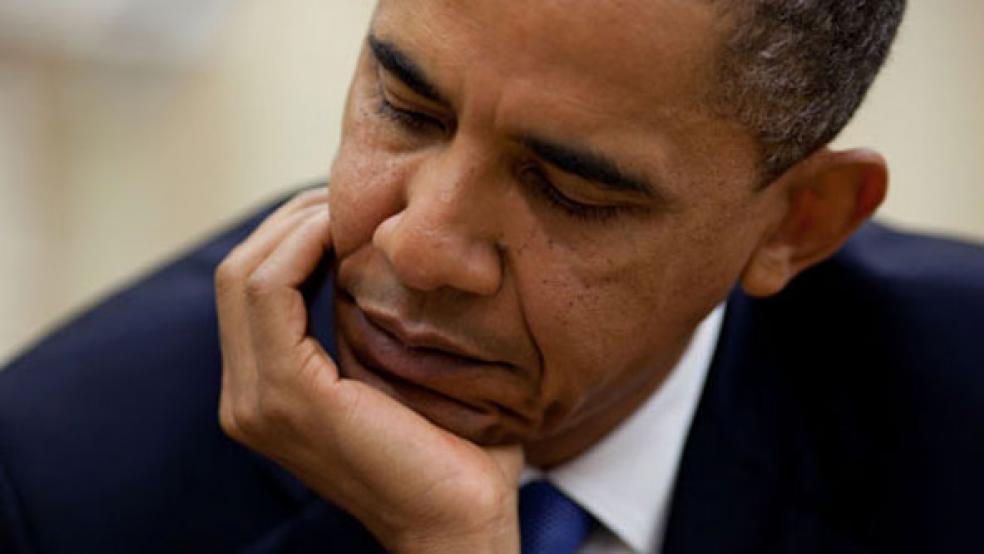President Obama’s opponents have often accused him of practicing “Chicago-style” politics. They accuse him of corruption and patronage. They say he runs the government in an authoritarian style and tries to undermine the people and groups who oppose him, including the tea party organizations investigated by the IRS.
During his first term, Obama’s White House did have a distinctly Chicago feel. David Axelrod and Rahm Emanuel were long-time political operatives in Illinois; neither shied away from confrontation. They were instrumental in getting the president’s signature health care law passed.
RELATED: WHY CONGRESS AND OBAMA ARE INCOMPETENT AMATEURS
While there is still a Chicago presence in the West Wing, large personalities like Axelrod and Emanuel have returned to the windy city. Instead, Obama dispatches Dan Pfeiffer, a long-time Washington insider, to help set strategy and defend his policies.
Now, new revelations about Obamacare and the 2012 presidential election show that some of that old Chicago muscle might still be needed here in Washington. As reporters try to make sense of the disastrous Obamacare rollout, they’re finding it was due in part to fear of angering Republicans. A book released today shows that Obama was less then an enthusiastic campaigner in 2012. His campaign was so worried about reelection that staffers considered replacing Joe Biden on the ticket.
These revelations also show a president who seems ill suited for Washington’s rough-and-tumble political game; Obama himself has said that he dislikes D.C. politics. Obama’s actions were often more lawyerly than presidential. And now he’s paying the price for his failure to lead.
OBAMACARE DEBACLE
A report in The Washington Post this past weekend indicated that one of the primary reasons for the failed Obamacare rollout was the White House’s worry about angering Republicans. As Amy Goldstein and Juliet Eilperin wrote, "Based on interviews with more than two dozen current and former administration officials and outsiders who worked alongside them, the project was hampered by the White House’s political sensitivity to Republican hatred of the law — sensitivity so intense that the president’s aides ordered that some work be slowed down or remain secret for fear of feeding the opposition.”
In others words, one of the primary reasons the law is failing is that the president did not want a political fight with Republicans, hardly the attitude of a politician schooled in the Chicago way.
“You’re basically trying to build a complicated building in a war zone, because the Republicans are lobbing bombs at us,” one unnamed White House official complained to The Post.
LACK OF CONFIDENCE IN 2012
Obama ran away with the 2012 presidential election. But in Double Down, the new chronicle of the 2012 race out today, John Heilemann and Mark Halperin describe a presidential campaign so concerned about reelection that he considered replacing Joe Biden with Hillary Clinton.
According to excerpts from the book, then-White House chief of staff William M. Daley conducted focus groups in 2011 to determine whether Clinton would make for a stronger ticket. The White House has denied that Obama knew about the groups, but Daley confirmed to The New York Times that the groups did meet.
"I was vocal about looking into a whole bunch of things, and this was one of them,” Daley told The Times. “You have to remember, at that point the president was in awful shape, so we were like, ‘Holy Christ, what do we do?’”
Obama staffers weren’t the only ones showing signs of weariness during the campaign. According to Heilemann and Halperin Obama himself had doubts about his second term.
RELATED: DEBT LIMIT—GOP AIMS AT OBAMACARE WITH BUDGET BULLETS
These doubts were on full display after Obama lost the first debate to challenger Mitt Romney. The authors say that Obama did not feel as if he had an agenda to tout for his second term. They quote Obama as saying:
"[M]y plans aren’t anything like the plans I ran on in 2008. I had a universal-health-care plan then. Now I’ve got … what? A manufacturing plan? What am I gonna do on education? What am I gonna do on energy? There’s not much there.
“I can’t tell you that ‘Okay, I woke up today, I knew I needed to do better, and I’ll do better,’ ” Obama said. “I am wired in a different way than this event requires.”
Obama then added, “I just don’t know if I can do this."
PROFESSORIAL, NOT PRESIDENTIAL
These excerpts, combined with the reports on leadership failure, paint a picture of an Obama that is more professorial than presidential. He’s extraordinarily smart, but some say his nature is better suited for the classroom, not the Oval Office.
This portrait is in line with many of the complaints of longterm Beltway insiders who say the president does not know how to lead in a way that allows the government to function effectively.
"President Clinton, President Reagan. And if you look at them, you can criticize them for lots of things. They by and large worked their will," Bob Woodward said in an interview about the failed 2011 debt ceiling deal. "On this, President Obama did not."
"Now, some people are going to say he was fighting a brick wall, the Republicans in the House and the Republicans in Congress. Others will say it's the president's job to figure out how to tear down that brick wall. In this case, he did not."


